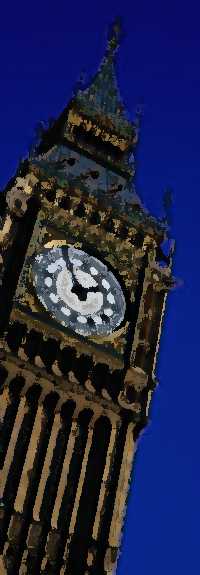Charles Dickens, son of John and Elizabeth
Dickens, was born in Landport, Hampshire on February 7, 1812. In 1814, Dickens moved first to London, then Chatham,
where he began school. In 1824, at the age of 12, Dickens was sent to work at a blacking factory, Hungerford Market,
London, while his father was in debtor's prison. Dickens paid his debt with the little money he inherited from his mother,
who died at the age of 79 when he was still in prison.
In
1824-27 Dickens studied at Wellington House Academy, London, and at Mr. Dawson's school in 1827. At the age of eighteen, Dickens applied for a reader's ticket
at the British Museum, where he soon gained the reputation as "the fastest and most accurate man in the Gallery." His career as a writer
of fiction started in 1833 when his short stories and essays appeared in periodicals. 'A Dinner at Poplar Walk' was Dickens's
first published sketch.
In
1836, Dickens married Catherine Hogart with whom he had 10 children. The couple separated in 1858.
It is suspected that Dickens was more fond of Catherine's sister, Mary, who moved into their house and died in 1837 at
the age of 17. Dickens also wanted to be buried
next to her and wore Mary's ring all his life.
Although Dickens's works as a novelist are what he is best remembered for, he also produced hundreds of essays
and edited and rewrote hundreds of others submitted to various periodicals. Dickens distinguished himself as an essayist in
1834 under the pseudonym Boz.
From 1858 to 1868, Dickens gave toured
Britain and the United States giving lectures. By the end of his last American tour, Dickens could hardly eat solid food,
living off of champagne and eggs beaten in sherry. In APril 1869, he collapsed at Preston, after which his doctors put a stop
to his public appearances. On June 8, 1870, Dickens suffered a sudden stroke, and died at Gadshill. His request for a funeral
entailed modesty, and wanted to be buried in a private ceremony.
